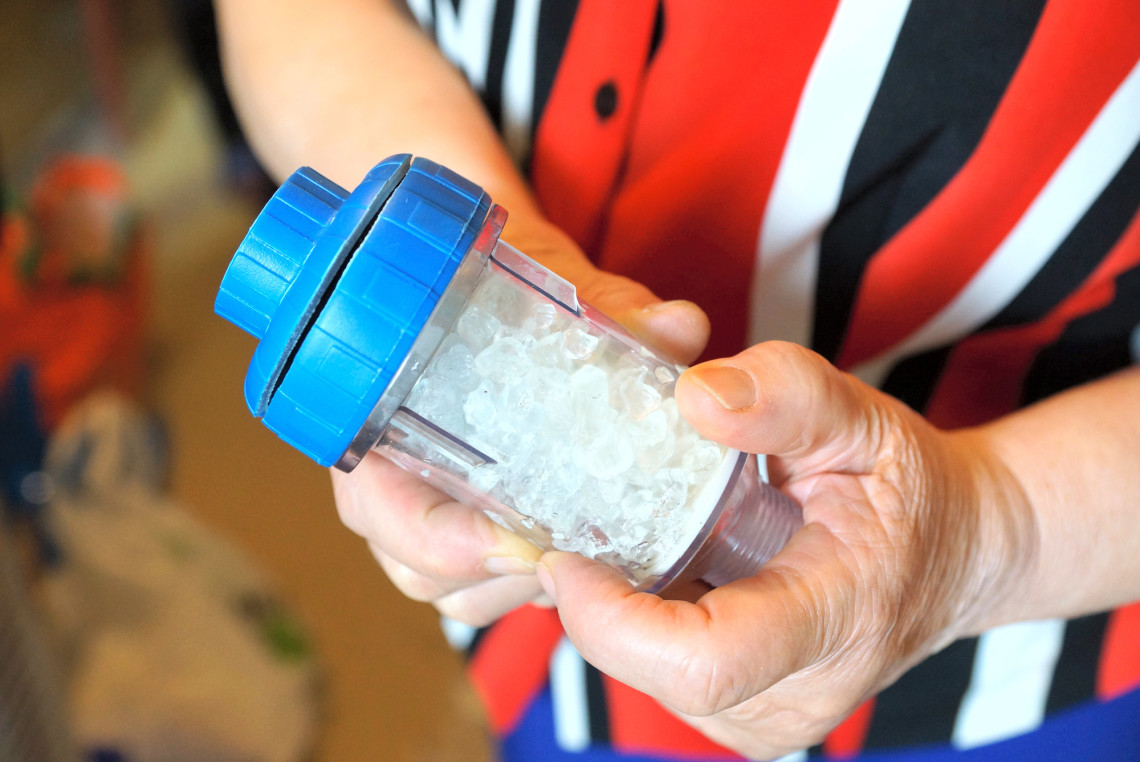
When water falls as rain, it’s naturally “soft.” So how does water become “hard” before it flows through our faucets? As rainwater flows along the ground and into the lakes and rivers we get our water supply from, it picks up trace amounts of minerals along the way. Those minerals affect how the water feels and tastes to us.
What’s The Difference Between Hard Water And Soft Water?
Simply put, hard water contains more dissolved minerals, such as calcium and magnesium, than soft water. Hard water isn’t harmful, and it may even have some benefits since it is full of minerals and decreases the solubility of potentially toxic metals such as lead and copper. The easiest way to tell if you have hard or soft water is to see how the water reacts when lathering soap. Hard water doesn’t usually form many suds, but instead creates soap scum and will leave behind a film instead of rinsing clean.
Why Does Phoenix Have Hard Water?
Arizona has some of the hardest water in the United States, with most water measuring between 15 and 25 grains per gallon. Much of Phoenix’s water supply comes from the Colorado River or from rainwater that absorbs the minerals found in Arizona soil as the water travels through watersheds to Phoenix’s water treatment plants. By the time the water gets to your home, it has accumulated high levels of dissolved minerals.
Effects of Hard Water on Plumbing
While hard water isn’t harmful to people or animals, it can cause issues with plumbing and home appliances. Sometimes hard water can lead to inefficiencies and shortened lifespans for household appliances, or damage pipes or other water containment units. Hard water can form white deposits, also known as scaling, which can clog plumbing and leave behind an unsightly residue on your sinks and tubs. Scaling can also impair the efficiency of boilers and hot water heaters, which lead to overheating and increased energy costs.
How to Eliminate Hard Water
Water softening methods can reduce the concentration of calcium, magnesium, and other minerals in hard water, exchanging the metal ions for sodium ions. Ion exchange softeners are the most effective whole-house softeners. Ion exchange softeners come in two main types. Sodium chloride softeners add a small amount of salt to water to soften it. Potassium chloride softeners are less effective but are a good solution for people who can’t have sodium. If you don’t like the idea of adding sodium or potassium to your water, consider adding a reverse osmosis filter to remove those chemicals after softening.
Water softeners can improve the water throughout the home, simplifying household cleaning tasks and protecting appliances and fixtures from premature failure. To learn about our soft water services, click here.
Write a comment: